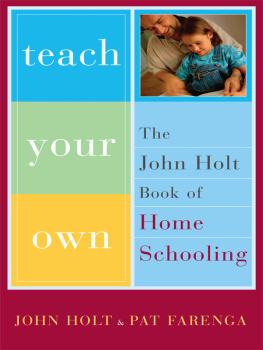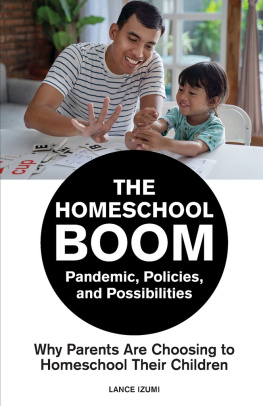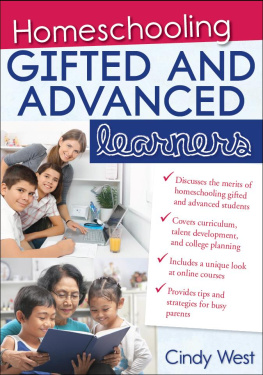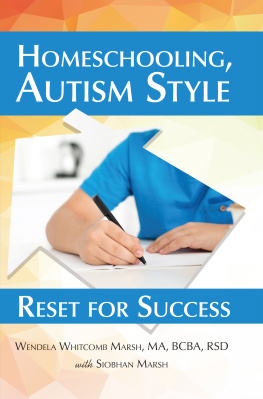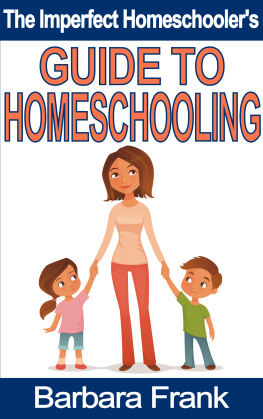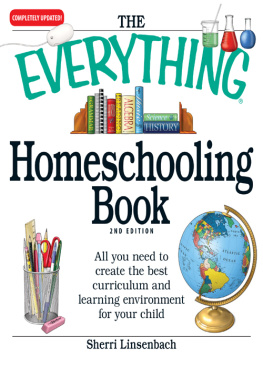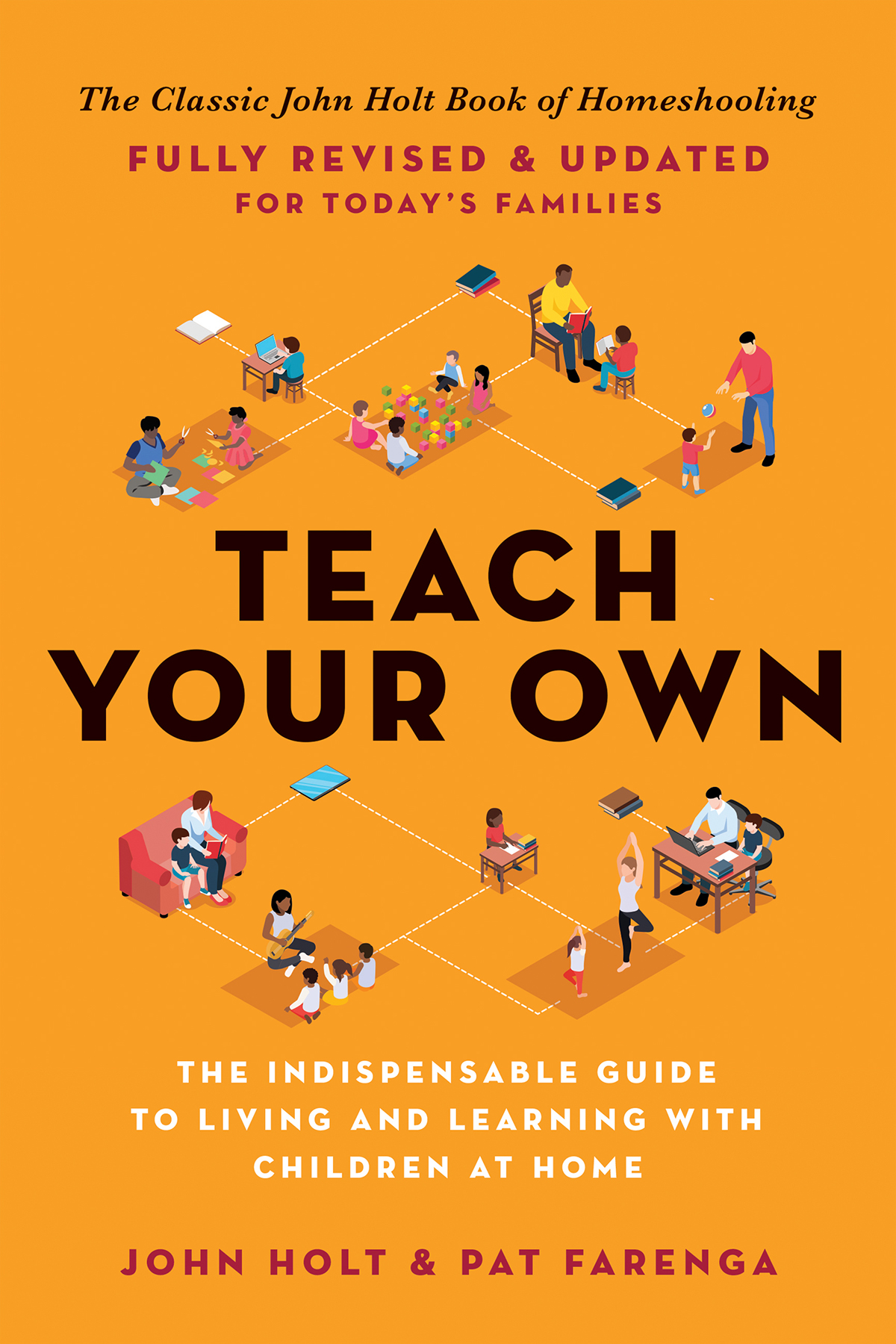
Many of the designations used by manufacturers and sellers to distinguish their products are claimed as trademarks. Where those designations appear in this book, and where Hachette Go was aware of a trademark claim, the designations have been printed in initial capital letters.
Portions of this book appeared earlier in Teach Your Own: A Hopeful Path for Education, copyright 1981 by John Holt, and The Beginners Guide to Homeschooling, copyright 2000 by Patrick Farenga.
Copyright 2003, 2021 by HoltGWS LLC
Cover design by Amanda Kain
Cover copyright 2021 by Hachette Book Group, Inc.
Hachette Book Group supports the right to free expression and the value of copyright. The purpose of copyright is to encourage writers and artists to produce the creative works that enrich our culture.
The scanning, uploading, and distribution of this book without permission is a theft of the authors intellectual property. If you would like permission to use material from the book (other than for review purposes), please contact permissions@hbgusa.com. Thank you for your support of the authors rights.
Hachette Go, an imprint of Hachette Books
Hachette Book Group
1290 Avenue of the Americas
New York, NY 10104
HachetteGo.com
Facebook.com/HachetteGo
Instagram.com/HachetteGo
Previously published by Da Capo Press: 2003
First Hachette Go Edition: September 2021
Hachette Books is a division of Hachette Book Group, Inc.
The Hachette Go and Hachette Books name and logos are trademarks of Hachette Book Group, Inc.
The publisher is not responsible for websites (or their content) that are not owned by the publisher.
Library of Congress Control Number: 2021941168
ISBNs: 9780306926211 (trade paperback); 9780306926204 (ebook)
E3-20210817-JV-NF-ORI
How Children Fail
How Children Learn
The Underachieving School
What Do I Do Monday?
Freedom and Beyond
Escape from Childhood
Instead of Education
Never Too Late
Teach Your Own
Learning All the Time
A Life Worth Living: Selected Letters
This book is dedicated to all those who have supported Growing Without Schooling and John Holts work and ideas. This book could not have been written without your courage and determination to teach your own children and share your stories.
T HIS THIRD EDITION could not have been written without the ongoing support and encouragement from my family, friends, and colleagues in the unschooling/homeschooling, alternative school, and learning center communities.
In particular, I want to thank everyone at the Alliance for Self-Directed Education for their unwavering support for unschooling and their friendship over the years, and especially to September James for helping me update the appendices of this book with ASDEs resources.
I also want to thank Peter Bergson, Aaron Falbel, Peter Gray, Steve Hargadon, Milva McDonald, Carlo Ricci, Sophia Sayigh, Susannah Sheffer, and Cevin Soling for our conversations related to self-directed education that made me rethink and refine my ideas.
Dan Ambrosio suggested creating this new edition to me and through his skillful editing made it happen. I especially want to thank Merloyd Lawrence, who edited John Holts last four books. For many years she has helped preserve and expand Johns literary legacy, and her kind advice has proven invaluable to me many times.
Patrick Farenga
NOTE: Growing Without Schooling (GWS) magazine is mentioned throughout this book. GWS was the first magazine about homeschooling, founded by John Holt in 1977. When John died in 1985, I became the magazines publisher. My colleagues Donna Richoux, Susannah Sheffer, and Meredith Collins were subsequent editors of GWS after Johns death. GWS ceased publication in December 2001. All 141 issues of GWS can be found at www.johnholtgws.com. 
LEARNING: LOST AND FOUND
A S A VETERAN HOMESCHOOLER AND AUTHOR , I field many questions about the lost educational and social opportunities homeschoolers face by not attending school, especially How will my children get into college or find work without a proper school transcript? and How will my children socialize if theyre not in school? The COVID-19 pandemic made these questions pertinent to every parent, not just to those considering homeschooling. Further, headlines such as Research Shows Students Falling Months Behind During Virus Disruptions and A Lost Generation: Surge of Research Reveals Students Sliding Backward, Most Vulnerable Worst Affected exacerbated our fears about children falling behind in school and therefore in life, causing further anxiety in families.
Dont let the hype upset you; your children will continue to learn and grow whether or not they are in school. Homeschoolers matriculate in and out of school, get into college, and find work they want to do without running through schools curricular gauntlet. Our lives and careers often do not run in the same patterns as educational institutions, or as we, ourselves, wish. Missing months or years of standard school learning does not take an equivalent amount of time to regain, if one needs to learn it at all.
Education is an important element of civil society, but it has become a sedentary institution, serving much more as a gatekeeper for employment opportunities instead of enabling active learning for students. Both in-person and online education continue to operate on the assumption that by exposing all children to the same information at the same time they will learn it. This core belief is hard to shake; generations of school reforms to make schooling more personalized have tried it and failed. Ivan Illich summarized this situation in The Futility of Schooling (1968): And yet it is politically inexpedient and intellectually disreputable to question the elusive goal of providing equal educational opportunities for all citizens by giving them access to an equal number of years in school.
To even question the order in which school subjects are taught is to invite being labeled nave or an enemy of education. For instance, in school the main reason for making sure children can read by the end of third grade is school management issues, not a childs biological development. In puberty, hair growth is spontaneous and happens to all healthy children over a range of time; there is no equivalent biological process in our bodies that triggers You will learn to read now. Reading is a learned behavior, and forcing someone to learn something they dont want to do can actually delay or impede learning.
However, the curriculum after third grade requires competent reading skills to succeed in school. Homeschoolers have long noted, and research shows, that when children are not forced to learn to read at home, boys tend to learn to read later than girls do. Once a child decides to learn to read, they learn quickly, catching up to their age-mates reading abilities in weeks or months, not years. Further,
This is why John preferred to refer to his work as unschooling; to describe learning that doesnt have to take place in school or at home and does not resemble school learning. Homeschooling has become the default word that captures many forms of learning without attending school. John often used unschooling and homeschooling interchangeably in his talks and writing, but it is clear that duplicating school at home is not what John meant when he used the word homeschooling.


